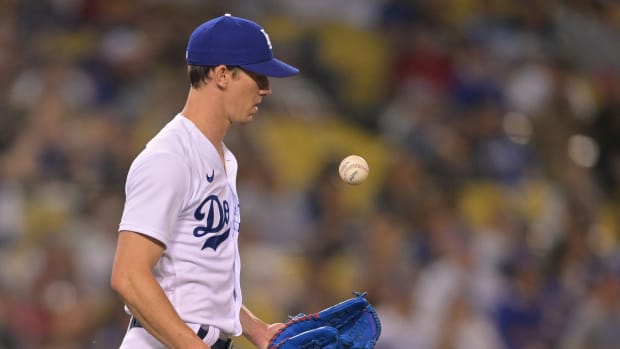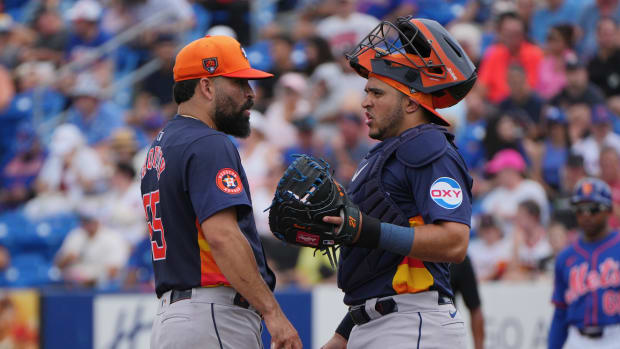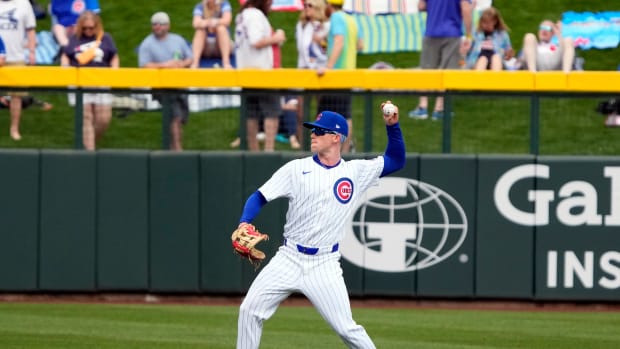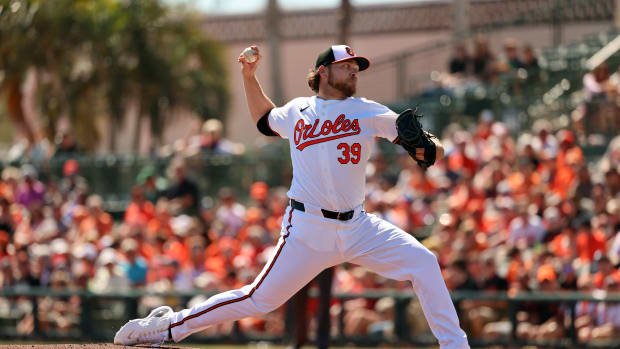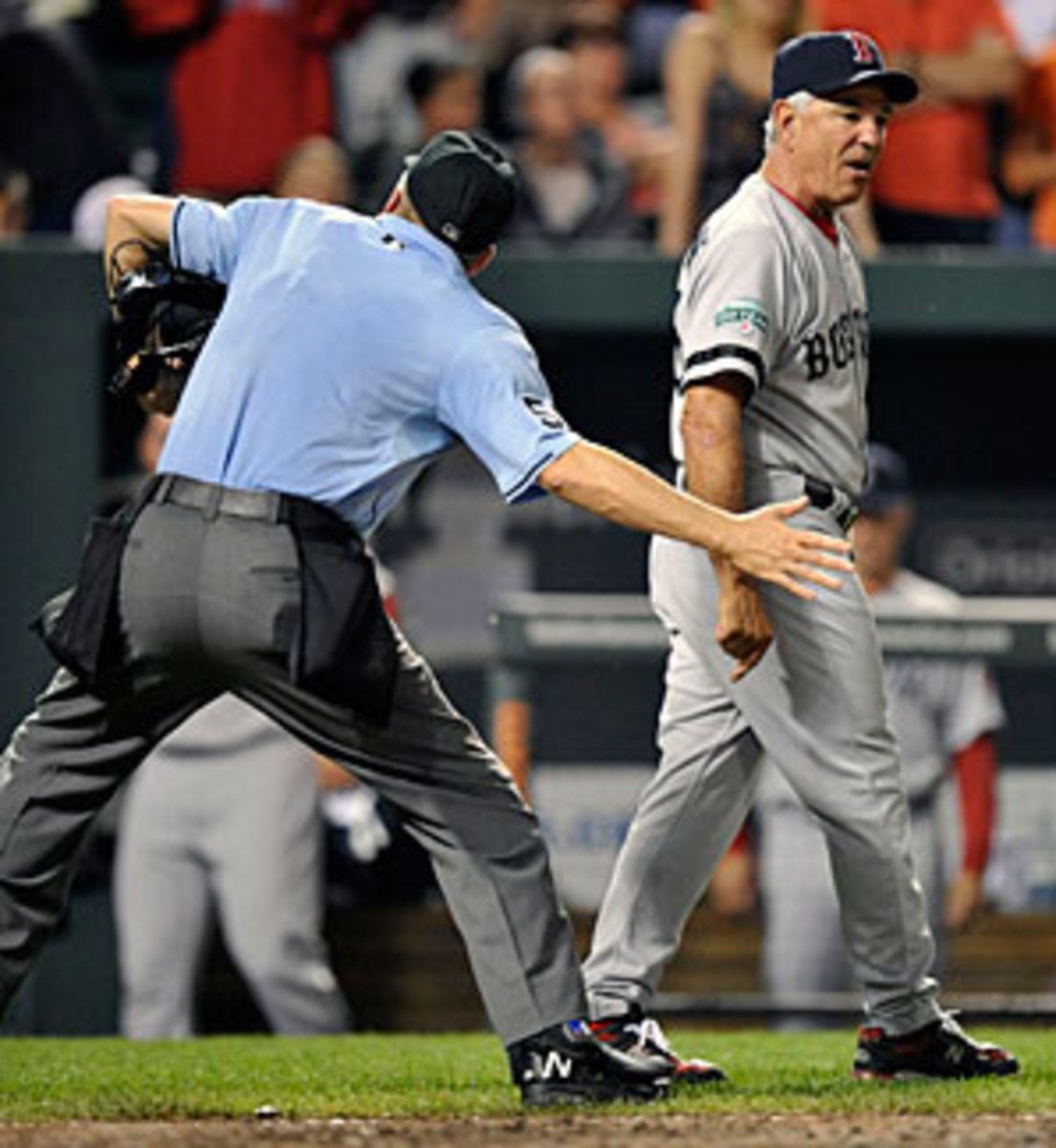
Odds are against Red Sox if they fire Valentine
Bobby Valentine got tossed in Baltimore on Wednesday and reports have surfaced that his own players would like to see it be permanent. (US Presswire)
Last week, in the wake of public votes of confidence for manager Bobby Valentine from owner John Henry and general manager Ben Cherington, I examined the problems that had befallen the Red Sox this season on the heels of last fall's shocking collapse. Between a massive wave of injuries, underachievement by nearly all of the team's top stars and unsuccessful trades by the front office, I concluded that Valentine deserved much less of the blame than he had received for what was then a 55-55 record.
Since then, the Sox have fallen four games under .500 at 57-61, and questions about Valentine's job security have only increased in the wake of a detailed report by Yahoo Sports' Jeff Passan regarding a July 26 meeting between the team brass and a majority of the active roster (between 14 and 17 players, according to the Boston Globe's Nick Cafardo). According to Passan, in that meeting, which included Adrian Gonzalez as well as de facto captain Dustin Pedroia, multiple players stated that they no longer wanted to play for Valentine. In the wake of that report, Gonzalez attempted to deflect the attention by assailing the messenger, and Pedroia expressed his support for the manager, with whom he clashed earlier in the year over his handling of Kevin Youkilis. Henry bemoaned the leaks from the meeting, reiterating his support for Valentine, while team president/CEO Larry Lucchino stated unequivocally that Valentine would finish the year.
Given that kind of support, it seems unlikely that the Red Sox will change managers, at least in the near term. But while few of the team's problems may be directly attributable to his work as manager, it's increasingly clear he's a poor fit for a club that is apparently in need of a massive cultural overhaul. "The Red Sox have become accustomed to losing," wrote Boston Globe beat reporter Peter Abraham, who pointed out that the team hasn't reached the playoffs since 2009, and hasn't won a postseason game since 2008. "With a few exceptions, most of the players shrug their shoulders and go about their business. That business, with few exceptions, is not winning baseball games." So should the Sox fire Valentine?
A new manager isn't likely to have any special skill to help reduce the injury rate among the Sox key players, nor is he likely to wave a magic wand that helps the team's rotation improve its 4.83 ERA, which ranks 11th in the league. The team is now 16-28 in games started by its two top hurlers coming into the year, Josh Beckett (who has a 5.19 ERA now) and Jon Lester (who's at 5.20); perhaps an earlier hook here or there might help, but it's not as though a new manager could magically give Aaron Cook the stuff to pick up the slack to pitch the team into the postseason.
Nor would recent history be on Boston's side. Few teams that have changed managers mid-season in the Wild Card era have recovered in time to make the postseason. From 1995 onward, 57 teams have made in-season changes, with just five (8.7 percent) reaching the playoffs. Neither of those totals includes the 1999 Astros, whose manager, Larry Dierker, temporarily surrendered control of the team to coach Matt Galante for around a month after undergoing brain surgery following a seizure he suffered during a game. Here are those teams in chronological order; as will become clear, it's tough to find a parallel for the Red Sox situation.
1996 Los Angeles Dodgers: Tommy Lasorda (41-35) and Bill Russell (49-37)
In 19 full seasons at the helm of the Dodgers, Lasorda had won four pennants and two world championships, but he suffered a mild heart attack on June 24. Doctors and team officials convinced the 68-year-old manager to step down in favor of Russell, who had played under Lasorda and was serving as a coach. The team, which was two games up in the NL West standings at the time of the heart attack, would battle the Padres for the division title, but in losing the final four games of the season, they settled for the Wild Card. They were bounced in a three-game Division Series sweep by the Braves.
2003 Florida Marlins: Jeff Torborg (16-22) and Jack McKeon (75-49)
The Marlins stumbled out of the gate under Torborg, who had piloted the team to a middling 79-83 finish the year before. On May 10, general manager Larry Beinfest fired Torborg and hired McKeon, a well-traveled, cigar-chomping 72-year-old who became the third-oldest manager in major league history. McKeon had managed four other franchises dating to 1973, and was known for modestly successful in-season turnarounds of sub-.500 clubs in San Diego in 1988 (67-48, third place) and Cincinnati in 1997 (33-30, third place), though he had never led a team to the playoffs. From the time he took over through the end of the regular season, the young Marlins — who featured rookies Miguel Cabrera and Dontrelle Willis — posted the league's third-best record, one behind the pace-setting Braves. They not only won the NL Wild Card but also the World Series, making McKeon just the second manager to win a championship with a team he had taken over in midseason; the Yankees' Bob Lemon had been the first in 1978.
2004 Houston Astros: Jimy Williams (44-44) and Phil Garner (48-26)
A reasonably successful manager with just one full season out of nine in which his team finished under .500, Williams had famously worn out his welcome in both Toronto and Boston, and he did so again with the Astros, whom he had steered within a game of the NL Central flag the previous year. Laden with accomplished stars such as Jeff Bagwell, Craig Biggio, Lance Berkman, Jeff Kent, Carlos Beltran, Roy Oswalt. Roger Clemens and Andy Pettitte, the Astros were nonetheless in fifth place in the Central at the All-Star break, 10 1/2 games out of first; even so, they were just 3 1/2 back in the Wild Card race. Williams was fired in favor of Phil Garner, who had just one season above .500 in nine full seasons managing the Brewers and Tigers. The Astros played up to their potential under him, and came within one NLCS victory of a trip to the World Series; they would get there the next season.
2008 Milwaukee Brewers: Ned Yost (83-67) and Dale Sveum (7-5)
Vying for their first playoff berth since 1982, the Brewers entered September with the league's second-best record behind the Cubs; they were 4 1/2 games ahead of the next-closest Wild Card contender, the Mets. They proceeded to lose 13 of their next 16, culminating in a four-game sweep by the Phillies that underscored Yost's tactical inadequacies while knocking the team out of the Wild Card lead. Yost was fired in favor of Sveum, the team's third base coach; while the Brewers lost four of their first five games under him to fall 2 1/2 games behind the Wild Card-leading Mets, they closed the season on a 6-1 run, clinching a playoff spot on the final day via the broad shoulders of midseason acquisition CC Sabathia. In doing so, they prevented the Mets from joining this list; the team had gone 55-38 under Jerry Manuel after a 34-35 start under Willie Randolph. The Brewers would go on to lose the Division Series against the Phillies.
2009 Colorado Rockies: Clint Hurdle (18-28) and Jim Tracy (74-42)
The Rockies won the NL pennant under Hurdle in 2007, his sole winning season in six full ones in Colorado. After tailing off to 74-88 in 2008, they struggled through the first two months of 2009 before Hurdle was canned on May 29 in favor of Tracy, his bench coach. At the time, the Rockies were 13 1/2 games out in the NL West and 8 1/2 back in the Wild Card race. After losing four of their first six under Tracy, they went on a 17-1 run to climb within half a game of the Wild Card, which they ultimately ended up winning before bowing to the Phillies in the Division Series. Under Tracy, the Rockies' record was 6 1/2 games better than any other team in the league.































